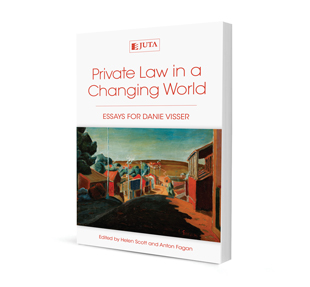
Why intention matters and how it does
Authors A Fagan
ISSN: 1996-2088
Affiliations: WP Schreiner Professor of Law in the UCT Law Faculty
Source: Acta Juridica, 2019, p. 283 – 313
Abstract
This essay looks at the role that intention plays in the determination of Aquilian liability. The essay explains that the role is an important, if restricted, one. There are three reasons for this, each of which is discussed in detail in the essay. First, certain kinds of harm-causing conduct can be wrongful, for the purpose of Aquilian liability, only if performed with intent. Second, even if harm-causing conduct could be wrongful also if performed negligently, the fact that it was performed intentionally may increase, even significantly, the likelihood that it was wrongful. Third, in the case of certain kinds of harm-causing conduct, the fact that the conduct was performed with intent excludes from the determination of wrongfulness, and thus also of liability, the kind of trade-offs involved in determining negligence. Having explained the role of intent in Aquilian liability, the essay goes on to discuss an important implication of the fact that intent has this role. Intentional harm-causing conduct was wrongful, for the purpose of Aquilian liability, if and only if it breached a duty not to cause harm intentionally – in the same way that negligent harm-causing conduct was wrongful if and only if it breached a duty not to cause harm negligently. A proper understanding of the role that intent plays in Aquilian liability thus provides further reason to reject the standard view of wrongfulness, as constituted by the breach of a duty not to cause harm (full stop) or of a duty not to cause harm by conduct that was ex post facto unreasonable.